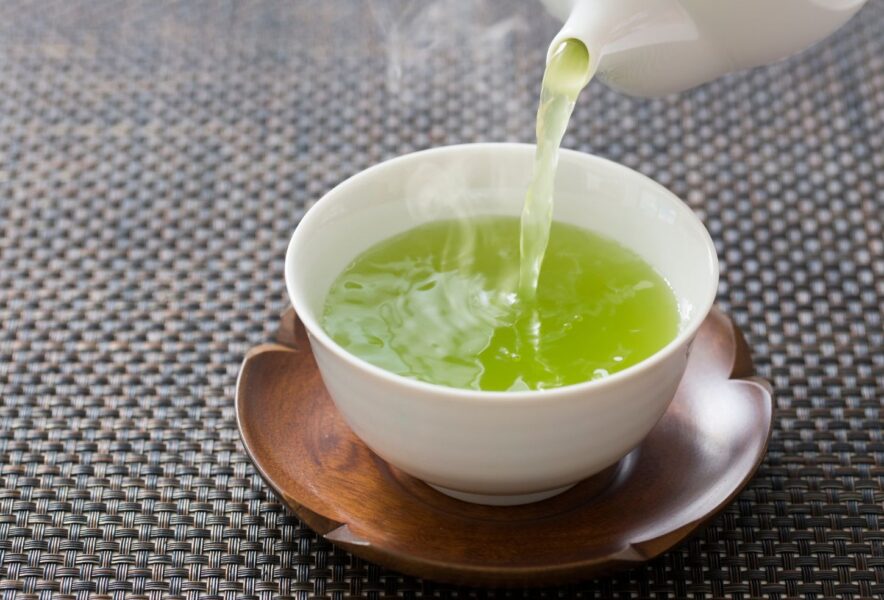Japanese tea is not just a beverage; it’s a cultural symbol steeped in centuries of history. From the meticulously prepared matcha in tea ceremonies to the convenient bottled teas found in every corner store, Tokyo offers a unique blend of traditional and modern tea experiences. Whether you’re a connoisseur or a casual drinker, this guide will lead you through the rich world of Japanese tea and where to enjoy it in Tokyo.
The History of Japanese Tea: From Tradition to Modern Tokyo
Japanese tea culture traces its origins to the 9th century when monks brought tea from China to Japan. Initially reserved for religious and royal ceremonies, tea became widely popular by the 12th century, thanks to the development of chanoyu (the tea ceremony). The tea ceremony, particularly the use of matcha, became an important cultural practice during the Muromachi and Edo periods. The intricate rituals, the emphasis on simplicity and natural beauty, and the tools used in the ceremony reflect the deep spiritual significance tea held.
Today, while the ceremonial aspects remain, tea has become more accessible and integrated into daily life. In Tokyo, you can experience the deep-rooted traditions of tea at specialized shops and enjoy its modern interpretations at trendy cafés.
Matcha: Japan’s Iconic Green Tea Powder
Matcha is arguably the most recognized form of Japanese tea internationally, thanks to its striking green color and its association with the Japanese tea ceremony. Matcha is made by grinding shade-grown tea leaves into a fine powder, resulting in a rich and slightly bitter flavor. It’s packed with antioxidants and has been associated with health benefits, such as improved focus and metabolism.
While matcha was historically consumed primarily during formal tea ceremonies, it’s now enjoyed in a variety of settings. In Tokyo, you’ll find matcha incorporated into everything from matcha lattes to matcha-infused desserts like cakes, ice creams, and chocolates. Some of the city’s modern matcha cafés also offer workshops where you can learn how to prepare matcha yourself. These workshops often focus on the whisking process—using a bamboo whisk, known as a chasen, to achieve the perfect froth.
Sencha: Japan’s Most Popular Everyday Tea
Sencha accounts for more than 70% of the green tea consumed in Japan. Unlike matcha, which uses powdered leaves, sencha is made from whole tea leaves that are steamed, rolled, and dried. Its taste can vary from astringent to slightly sweet, depending on the quality and method of preparation. For many Japanese households, a pot of sencha is an everyday ritual, enjoyed with meals or as a refreshing afternoon drink.
In Tokyo, many traditional tea shops specialize in sencha of various grades, with premium options offering a more delicate flavor. Some shops allow you to sample different types of sencha, helping you appreciate the subtle differences between regions and production methods.
Hojicha: The Roasted Tea with a Unique Aroma
For those who prefer a more mellow tea experience, hojicha offers a comforting, roasted flavor. Hojicha is made by roasting green tea leaves, which reduces their caffeine content and gives the tea a deep, earthy aroma. Its rich, toasty flavor makes it popular during evening meals or as a relaxing drink before bed.
While hojicha is traditionally served hot, many cafés in Tokyo have started offering hojicha lattes or hojicha-flavored desserts like cakes and ice cream. The versatility of hojicha makes it a popular option for tea lovers who want a break from the typical green tea experience.
How to Find Japanese Tea in Tokyo: Everyday Convenience and Perfect Souvenirs
One of the most delightful aspects of enjoying tea in Japan is its accessibility. Tokyo’s convenience stores (Lawson, 7-Eleven, and Family Mart) and vending machines are stocked with a wide variety of bottled teas, including green tea, hojicha, and genmaicha (green tea with roasted rice). These teas are perfect for on-the-go refreshment and are enjoyed by locals throughout the day.
If you’re looking to bring home a more traditional tea experience, visit Tokyo’s department stores, like Isetan or Mitsukoshi, which have entire sections dedicated to high-quality loose-leaf teas. You’ll find beautifully packaged tea sets that make perfect souvenirs or gifts. These stores offer premium-grade sencha, matcha, and other teas from renowned regions like Uji in Kyoto or Shizuoka.
Additionally, many tea shops offer an immersive shopping experience where you can sample different teas before buying. This helps you discover which flavors and qualities suit your palate best, whether it’s the bold flavor of a first-flush sencha or the delicate bitterness of ceremonial-grade matcha.

Comment